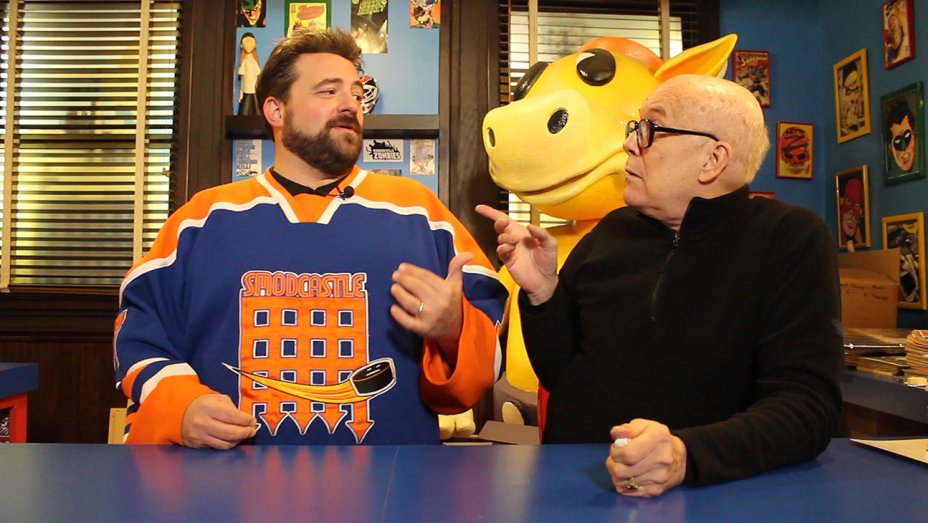Film Hawk, a documentary directed by JJ Garvine and Tai Parquet, opens with indie filmmaker Kevin Smith standing squarely in the middle of the frame. In direct address, Smith candidly recalls the first public exhibition of his now-lauded film Clerks: there were 12 people there, of whom 10 were his friends. Smith was broken, he couldn’t get of bed for weeks following that disappointment. “It’s all I had done for a year… I thought my life was over.”
The person who Smith accredits his success to is independent film ‘consultant’, and subject of the documentary, Bob Hawk. It’s likely that, to those of us who are outside the organs of the US independent film scene, Hawk’s name is a foreign one. And that is precisely the point of Film Hawk: to pay tribute to the often selfless, film-loving Bob Hawk – who played a part in launching the careers of Barbara Rick, David Seigel and Scott McGehee, Barbara Hammer, Edward Burns, Kimberley Reed, and of course, Kevin Smith.

In an early scene in the documentary, we are taken to a quaint, dimly-lit restaurant where Hawk is celebrating his 75th birthday. He is surrounded by the company of independent film directors, producers and writers, who unreservedly express their appreciation and fondness of Hawk. This is a particularly intimate moment in the documentary, of authentic insightfulness.
The documentary mostly runs on the fuel of alternating threads of testimony to Hawk’s “encyclopaedic knowledge” and “genius” as a figure in the cinema, and of his personal history. Film Hawk pulls together myriad accounts of Hawk’s cinematic expertise, and the impact he has made on so many independent filmmakers. It also recalls Hawk’s life – his idiosyncracies, his childhood, his embrace of his homosexuality; and his battles with financial troubles and clinical depression.
Film Hawk always succeeds in endearing Hawk to us; and in establishing his important status within independent cinema. However, it struggles to penetrate his character, and thus fails to uncover the deep emotional pull that Film Hawk wishes to unleash. This is mostly due to the fact that the documentary often skims over pivotal events in his life, preferring to provide us with an overview than an intensive study. Moreover, the production values, or lack thereof, can detract from the documentary; as the sound production is sometimes lo-fi, and the film image of poor quality.
The scenes with Smith are undoubtedly the most memorable and emotionally resonant. Garvine and Parquet are evidently aware of this, as they bookend the documentary with Smith. The reason for this is that Smith is the most open with the documentarians, as he recalls Hawk’s impact on him with tears streaming down his face: “the reason I do what I do today… can all be traced to Bob Hawk.”
This is an admirable effort from Garvine and Parquet, who do their best to make Film Hawk a love letter to a man who has helped independent cinema prosper. One can only hope it reaches audiences outside of this niche, but that is hardly a sure thing.
3.5/5 stars.
Film Hawk is showing at the Melbourne Documentary Film Festival on 11 July at 6:30. Tickets can be purchased at: http://mdff.org.au/

